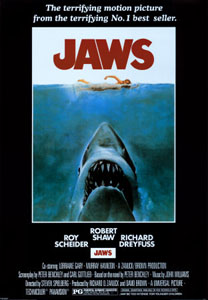
OTOBOS is one of the fundamental tenets of project management. A project manager should strive to keep their projects On Time, On Budget and On Scope. We generally accept this to be true. After all…if a project runs late, or costs way more than expected, a lot of people won’t be very happy. Because we generally understand this, it’s very easy for project managers to lose sight of what’s really important about their project, and hone in on their triple constraint. Unfortunately, they often elevate their need to deliver projects within OTOBOS parameters above the actual project objectives.
I have even seen OTOBOS be called out as a specific project objective in some charters.
Let’s be clear. Being On Time, On Budget and On Scope is very important. However, it’s also the project manager’s problem. If the PM shows no concern for a project’s triple constraint then the sponsor will likely find a replacement.
And OTOBOS stops when the project does. Don’t real objectives need to have a little more longevity? After all, the product or service the project creates will (hopefully) continue to live long after the project has closed its doors for good. Perhaps we can put OTOBOS in its proper perspective by looking at a wildly successful project that ran horrifically late and went catastrophically over its budget.
How about the movie Jaws? This is a film that redefined the movie going experience. Before this movie came out, the summer blockbuster didn’t even exist. Merchandising opportunities for movies had been few and far between. Jaws’ success changed everything.
From a stakeholder perspective, this film was nothing short of an astounding success.
But things weren’t very rosy during production. The project’s baseline schedule called for a production of 55 days and a budget of $3.5 million. By the time production wrapped 159 days later, Steven Spielberg had spent over $9 million.
Threat of cancellation loomed each day the project pushed past its deadline. As the bills kept mounting, stakeholder confidence in Spielberg’s abilities dwindled. Mechanical difficulties with a fake shark that was never salt-water tested and a script that still wasn’t complete weeks into the shoot created a tremendous amount of friction on the project team. If you listen to Spielberg recount his experience on this film you’ll find he was carrying the weight of the world on his shoulders. This was an experience he would not wish to repeat.
But he had a vision. He knew what he wanted to create. He knew what his stakeholders needed. While his approach to risk management may have been pretty disastrous his clarity surrounding the finished product never wavered. The result broke all box office records, created countless sequels and parodies, redefined the summer movie and blew the lid off the movie merchandising industry.
What can we learn from this? A project that is OTOBOS is unlikely to be cancelled. All being “not cancelled” gives the project manager, however, is the opportunity to see the project’s objectives through to completion. OTOBOS is the platform on which we create project objectives. These are informed by a vision.
Make sure you have one.
What do you think? Do you believe OTOBOS is a valid project objective? Do you believe OTOBOS is more important than other project objectives? How do you think project sponsors and stakeholders rate on time, on budget, on scope against other things? Shout out in the comments below!






